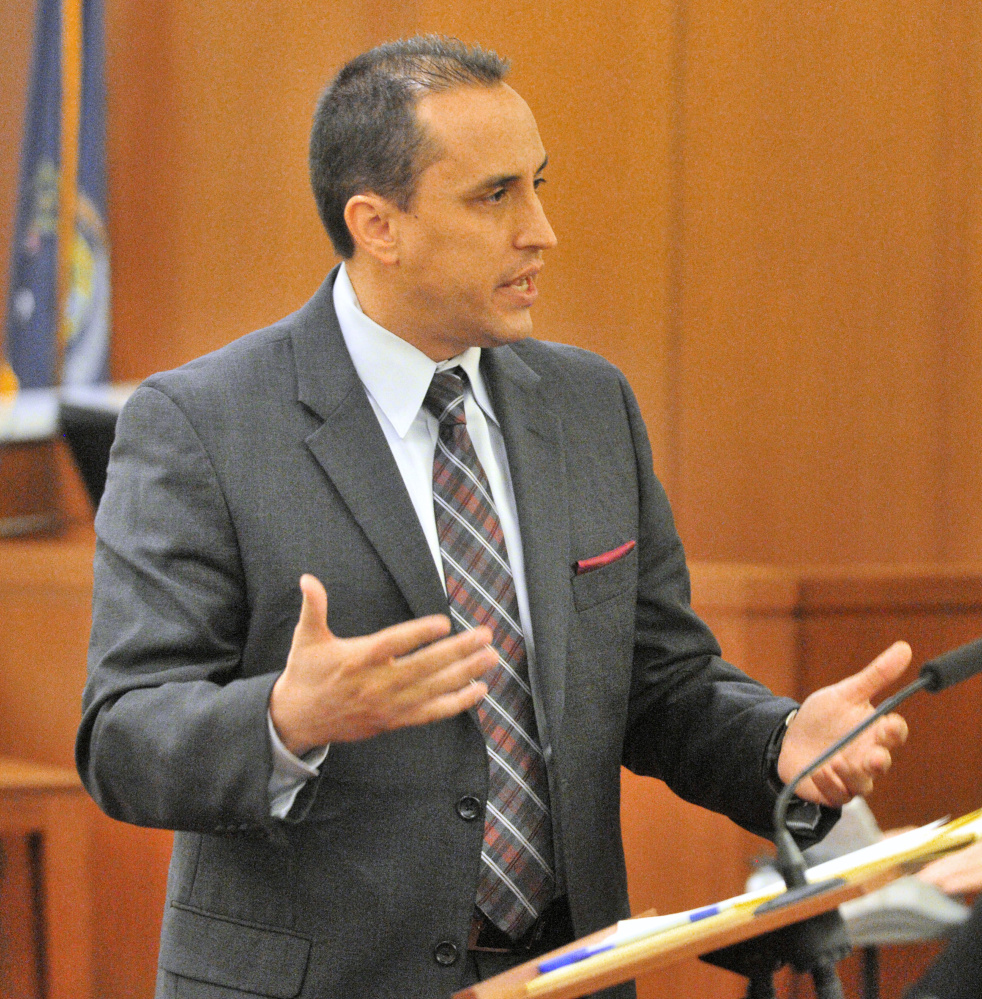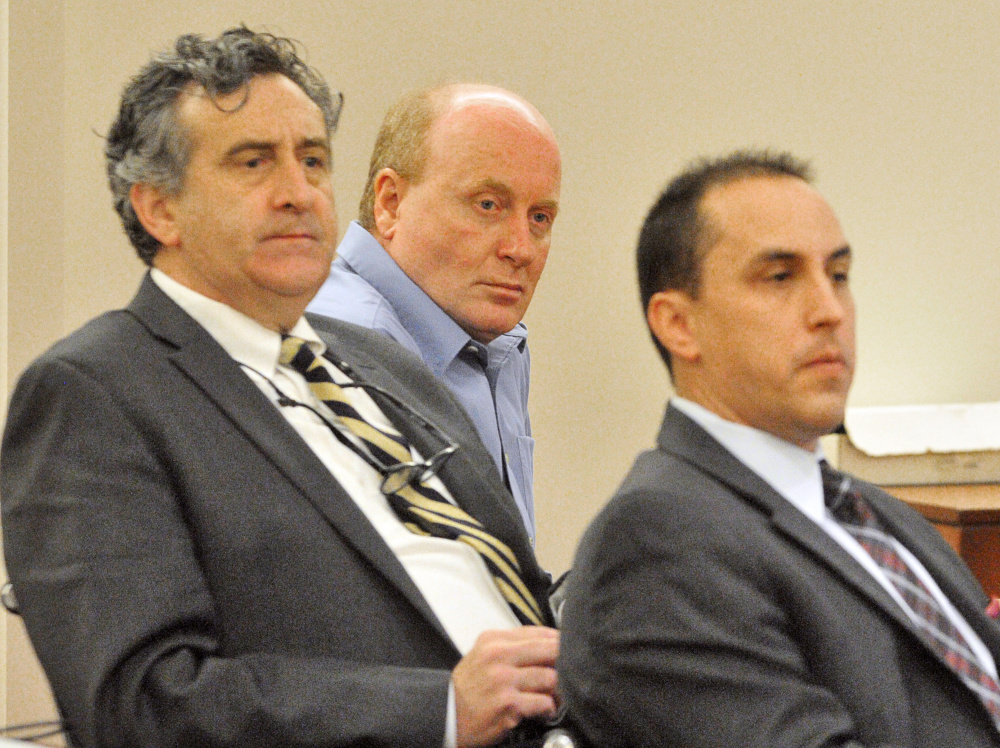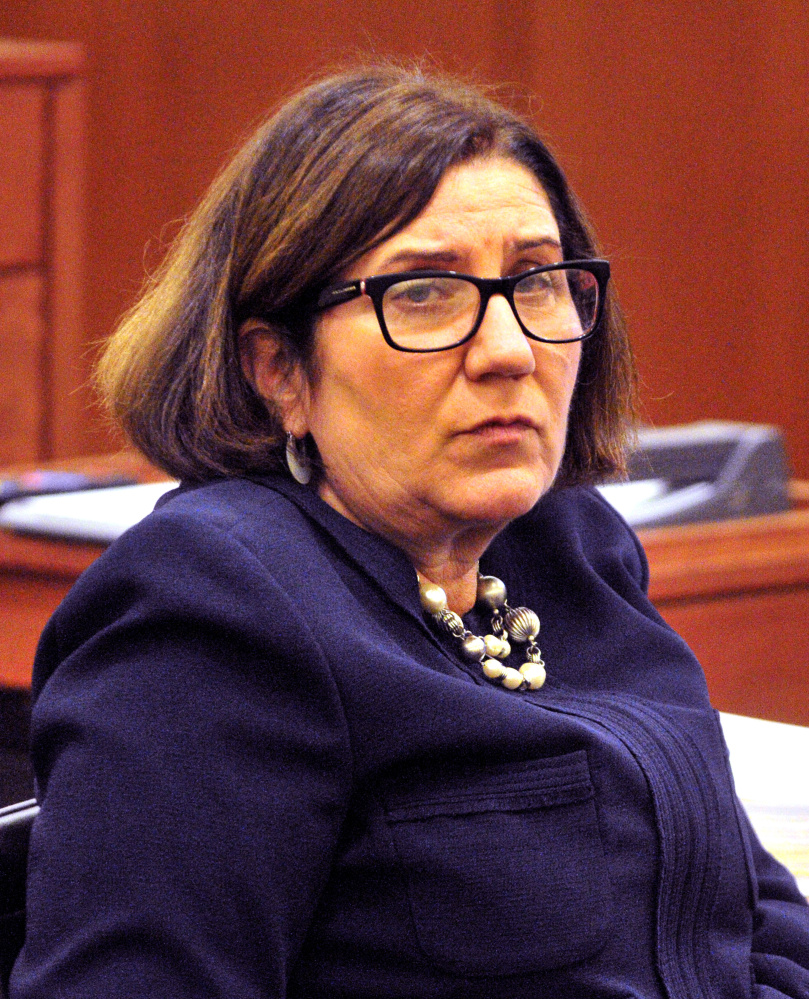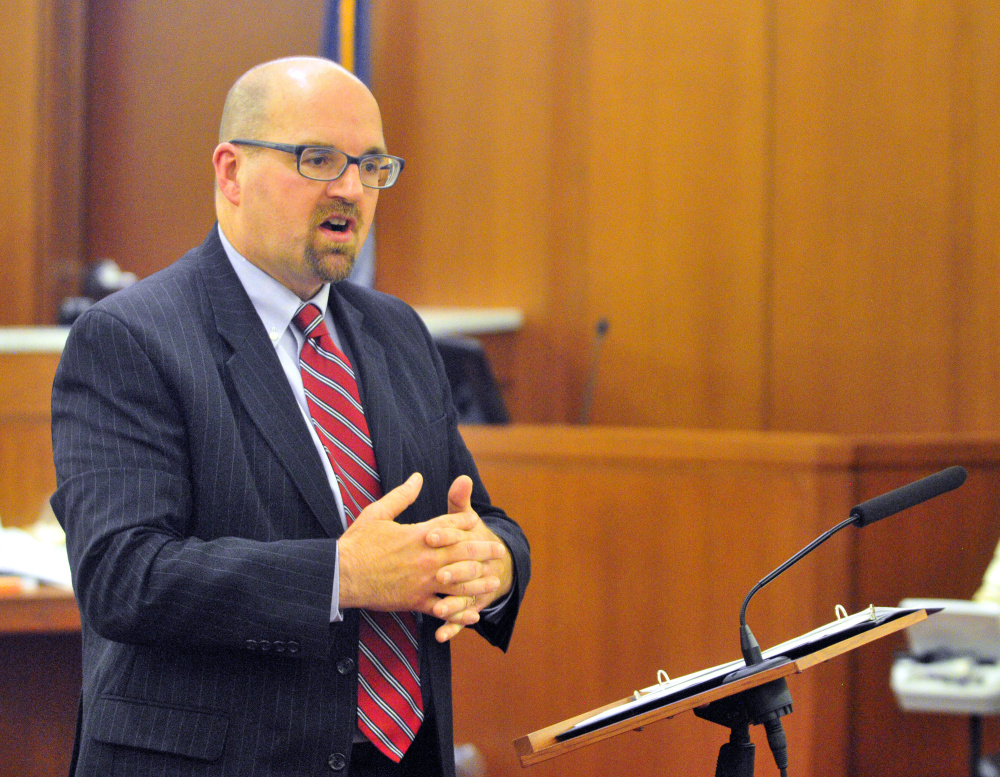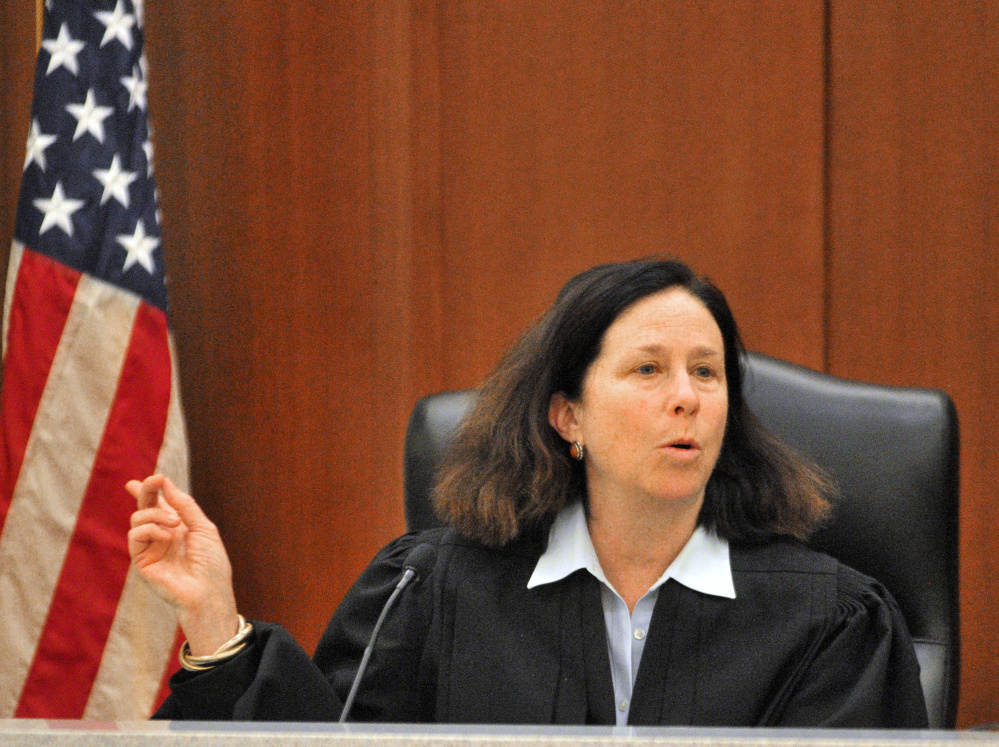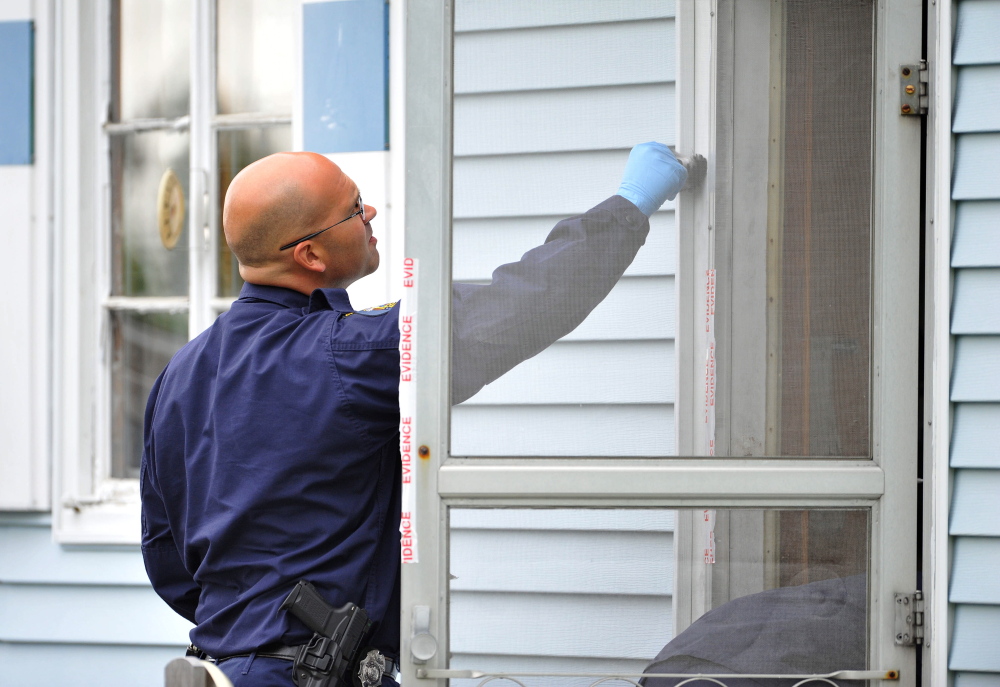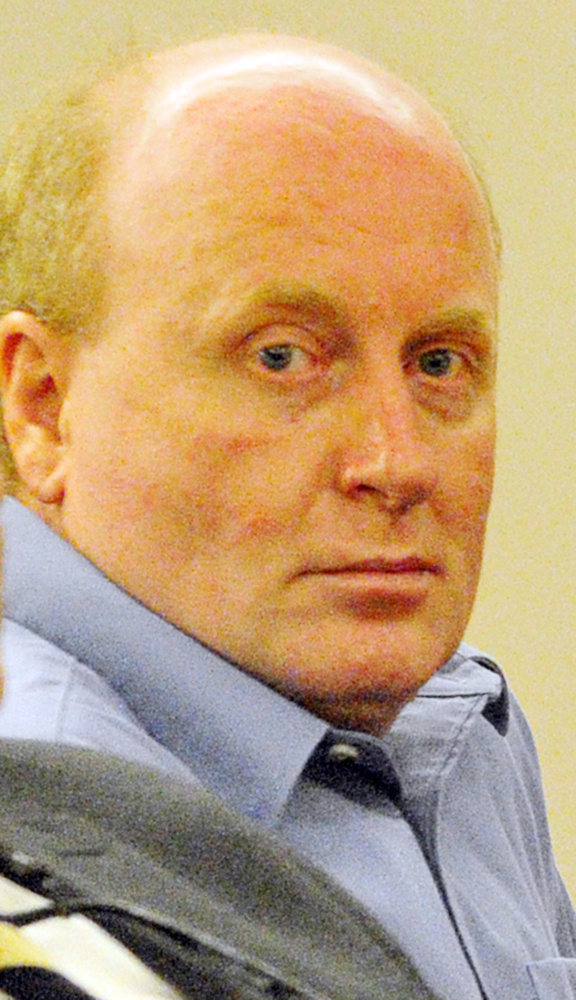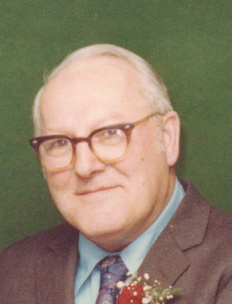AUGUSTA — Blood smears the pillow in Aurele Fecteau’s bedroom, where his body is at an angle on the bed and covered in a white blanket. Papers and a money box are strewn across the bed. Bureau drawers are wide open. A dark green shade is pulled all the way down, blocking the window.
A photograph of the homicide scene was shown Thursday on large monitors in a courtroom on the first day of testimony in the trial of Roland L. Cummings, 46, of Waterville.
Cummings is charged with murdering Fecteau, 92, on May 20, 2014, in the bedroom of Fecteau’s home, 33 Brooklyn Ave. in Waterville, as well as burglarizing Fecteau’s home and stealing two rings from him, including one given for his years of service at Scott Paper in Winslow.
Testimony in the jury trial at the Capital Judicial Center is expected to continue through next week.
The photograph was one of several shown to the 16 jurors; others included exterior views of Fecteau’s home and yard. Four alternates were selected as jurors because the trial is expected to last for several days.
That chaos in the bedroom was the scene that greeted Ernest Fecteau on May 23, 2014 when he went to check on his father. The older man had not answered his son’s calls that day or the previous day.
After pounding on the door several times and checking the yard, Fecteau let himself into his father’s house with a key and went to the bedroom.
“When I opened that door, I got the shock of my life,” Ernest Fecteau testified. “I observed my father laying on the bed at an angle with a lot of blood. The place looked like it was ransacked.”
He said he went around the bed to place the back of his hand on his father’s forehead, finding it “ice cold.”
Fecteau said he was unsuccessful in his attempts to reach 911 operators, so he called his wife and she phoned for help.
Waterville police Officer Cameron Huggins, who had been the first officer to arrive, identified several photographs of the bedroom scene, indicating that the blankets, tucked in when he arrived, had been moved.
On Thursday, one of the two prosecutors, Assistant Attorney General Donald Macomber, held up three pairs of Aurele Fecteau’s pants, pockets turned out, each pair encased in a heavy plastic bag, telling jurors that Cummings’ DNA was found on those pockets.
In his opening statement, Macomber said that would be part of the evidence he planned to use to tie Cummings to Fecteau’s murder.
Cummings pleaded not guilty to all charges, although he told police previously he had rifled through Fecteau’s pants looking for money when he stopped by to ask about doing odd jobs for him. Cummings has been in custody since about two weeks after Fecteau’s body was discovered. On Thursday in the courtroom, Cummings wore black trousers and a long-sleeved blue dress shirt with the collar unbuttoned.
“Common sense and reason will tell you if Roland Cummings’ DNA is found on the turned-out pockets of three separate pairs of pants on the floor of the bedroom … that it was Roland Cummings that inflicted those 16 stab wounds that caused Aurele Fecteau’s death,” Macomber said in his opening.
Darrick Banda, a defense attorney for Cummings, said that doesn’t prove murder.
“Being a thief does not make one a murderer,” Banda said. “Roland Cummings was perhaps the easiest choice for law enforcement in this case, but he was not the correct one.”
Banda also told jurors that during such a bloody slaying, some of Aurele Fecteau’s DNA should have transferred to Cummings’ clothing, but none was found.
One of Fecteau’s daughters, Ann Bucknam, of Sidney, testified that the pants presented as evidence were those worn by her father when he gardened in his yard, one of his favorite activities.
She said she drove him to doctors’ appointments and took him grocery shopping. She also testified he suffered from macular degeneration, a condition that affected his eyesight, so she helped him pay bills and organize his money in his wallet so he wouldn’t mistakenly pull out a $100 bill when he wanted a $20.
She said he had prescription medication, including oxycodone and Vicodin, and kept it in his bedroom and in the kitchen.
“I encouraged him not to leave those laying around,” Bucknam said.
Bucknam gave a glimpse into her father’s personality, saying he would still mow the lawn, garden and do cooking and baking when he felt up to it.
“For the most part, my father was a very, very organized person, especially for a guy,” she said, adding “Sorry, guys,” and getting a chuckle from listeners.
She said he was thrifty, and could be stubborn, refusing to use a new wallet she bought for him and preferring an old one and a plastic change purse that opened when it was squeezed.
Bucknam also said her father had more than $1 million in bank accounts.
As she was on her way to Moosehead Lake for the 2014 Memorial Day weekend, she learned in a phone call from her sister-in-law Lorraine Fecteau and that her father was dead.
Dr. Mark Flomenbaum, Maine’s chief medical examiner, testified Thursday afternoon that Aurele Fecteau died from multiple stab wounds and that his lungs and aorta were both punctured by a blade. Flomenbaum, who performed the autopsy, said several of the injuries alone would have been fatal, while others potentially would have caused death through bleeding.
Flomenbaum also identified a red, long-sleeved T-shirt that Fecteau had been wearing, pointing out the cuts on the shirt that matched the wounds he had marked on a diagram of four silhouettes of the body.
Most of the wounds were on the left side of the chest and arm. The shirt, the trousers and a number of photographs admitted as evidence were piled on a table directly in front of the judge’s bench.
The openings by attorneys were watched by about two dozen people, including friends and relatives of Fecteau, and filmed by four news media cameras.
Justice Michaela Murphy warned jurors against watching or listening to any media reports about the case and told them to report back to the courthouse at 9 a.m. Friday.
Betty Adams — 621-5631
Twitter: @betadams
Send questions/comments to the editors.


